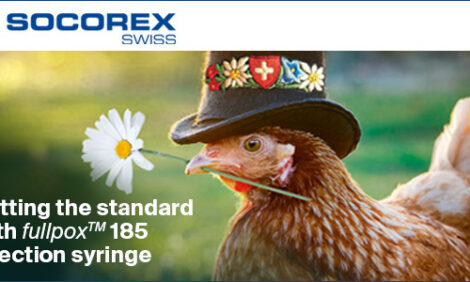



Effects of Increasing Concentrations of Corn DDGS on Chemical Composition and Nutrients Content of Egg
Feeding a high level of maize (corn) distiller’s dried grains with solubles (DDGS) to laying hens increased the content of lutein and polyunsaturated fatty acids in egg yolk in this experiment at Iowa State University.Four diets were formulated to contain 0, 17, 35 or 50 per cent corn DDGS, report Hongy Sun of Iowa State University and co-authors there and at Virginia Polytechnic Institute and State University.
A total of 240 54-week-old single-comb White Leghorn laying hens were assigned to one of four dietary treatments and fed for a 24-week experimental period.
Two sets of the experimental diets were formulated and each diet was fed for 12 weeks. Chemical composition and nutritional components in egg yolk were measured.
Egg yolk from hens fed DDGS-containing diets tended to have higher fat content and lower protein content.
Total polyunsaturated fatty acids were significantly increased by DDGS diet.
The contents of choline and cholesterol were initially higher in the 50 per cent DDGS treatment group but were not different in the later period, especially during last four weeks.
Lutein content increased linearly as DDGS level increased.
The results indicated that feeding high level of DDGS can increase the content of lutein and polyunsaturated fatty acids in egg yolk but did not affect the content of cholesterol or choline.
Reference
Sun H., E.J. Lee, M.E. Persia and D.U. Ahn. 2015. Effects of increasing concentrations of corn distiller’s dried grains with solubles on chemical composition and nutrients content of egg. Iowa State University Animal Industry Report 2015.
May 2015








